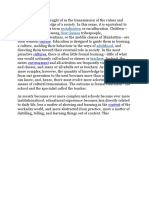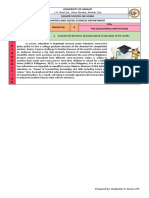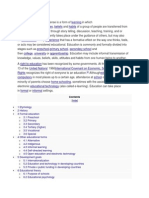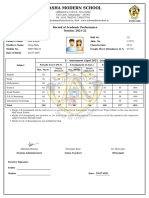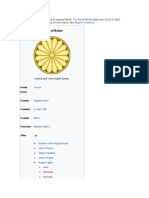0% found this document useful (0 votes)
47 views1 pageSocialization New Guinea Renaissance Culture Adulthood Cultures Teachers Environment
Education serves as the transmission of societal values and knowledge, akin to socialization or enculturation. Initially, children learn through their environment and interactions with adults, but as societies become more complex, formal education systems and specialized teachers emerge to effectively convey knowledge. This evolution reflects the need for structured cultural transmission in increasingly intricate societies.
Uploaded by
Saiby khan KhanCopyright
© © All Rights Reserved
We take content rights seriously. If you suspect this is your content, claim it here.
Available Formats
Download as DOCX, PDF, TXT or read online on Scribd
0% found this document useful (0 votes)
47 views1 pageSocialization New Guinea Renaissance Culture Adulthood Cultures Teachers Environment
Education serves as the transmission of societal values and knowledge, akin to socialization or enculturation. Initially, children learn through their environment and interactions with adults, but as societies become more complex, formal education systems and specialized teachers emerge to effectively convey knowledge. This evolution reflects the need for structured cultural transmission in increasingly intricate societies.
Uploaded by
Saiby khan KhanCopyright
© © All Rights Reserved
We take content rights seriously. If you suspect this is your content, claim it here.
Available Formats
Download as DOCX, PDF, TXT or read online on Scribd
/ 1
